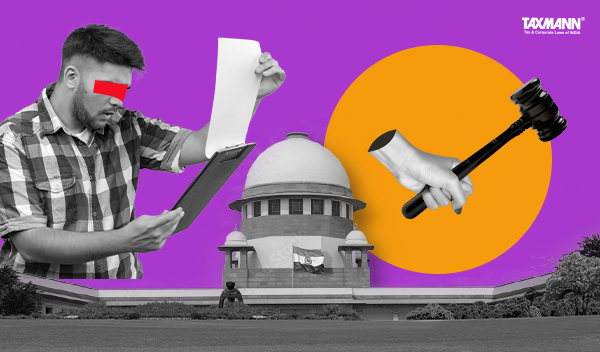Assessee Can Confine Settlement of Dispute to One Issue; Revenue Can’t Compel Settlement of Other Issues | HC
- News|Blog|Income Tax|
- 2 Min Read
- By Taxmann
- |
- Last Updated on 26 December, 2024

Case Details: Rose Wood Buildwell (P.) Ltd. vs. Pr. Commissioner of Income-tax-7 - [2024] 169 taxmann.com 414 (Delhi)
Judiciary and Counsel Details
- Vibhu Bakhru & Ms Swarana Kanta Sharma, JJ.
- Sumit Lalchandani & Tarun Chanana, Advs. for the Petitioner.
- Indruj Singh Rai, Sanjeev Menon, Rahul Singh & Anmol Jagga, Advs. for the Respondent.
Facts of the Case
Assessee-company, engaged in real estate business, had filed its return of income, which was selected for scrutiny and an assessment order was passed making certain additions. The assessee filed an appeal before the Commissioner (Appeals), who partly allowed the assessee’s appeal.
Both assessee and revenue preferred their respective appeals before the Tribunal. The tribunal allowed the assessee’s appeal but did not accede to the revenue’s appeal. In the meantime, the assessee filed a declaration under section 3 of the Direct Tax Vivad Se Vishwas Act, 2020 (DTVSV Act) in respect of its appeal, which was confined to only one issue regarding the disallowance of loss claimed by it in respect of trading in derivatives.
However, the Commissioner issued the certificate under the DTVSV Act, with modification and included the settlement of certain disputes that were not the subject matter of the declaration made by the assessee. The matter reached before the Delhi High Court.
High Court Held
The Delhi High Court held that the assessee had filed a declaration in respect of its appeal. The disputed tax paid is confined to the tax, interest and penalty payable in respect of the loss in derivatives which was the subject matter of appeal. The fact that the revenue had preferred a consolidated appeal against the order passed, and its appeal would not detract from the fact that revenue’s appeal to this Court was in respect of an order relatable to two separate appeals.
The issues involved in the two appeals are not interlinked. The dispute, the subject matter of appeal and revenue’s appeal, was confined to deleting addition under section 68. The assessee’s declaration does not concern the dispute as it was confined to the order passed by the Tribunal regarding its appeal.
Accordingly, the petition is allowed, and the certificate issued by the designated authority in Form No. 3 is directed to be confined to the declaration made by the assessee. The respondents are accordingly directed to take steps to issue a modified certificate under section 5(1) of the DTVSV Act.
List of Cases Reviewed
- MUFG Bank Ltd. v. Commissioner of Income Tax 2 & Anr. Neutral Citation No. 2022/DHC/005159 (Para 27) followed.
Disclaimer: The content/information published on the website is only for general information of the user and shall not be construed as legal advice. While the Taxmann has exercised reasonable efforts to ensure the veracity of information/content published, Taxmann shall be under no liability in any manner whatsoever for incorrect information, if any.

Taxmann Publications has a dedicated in-house Research & Editorial Team. This team consists of a team of Chartered Accountants, Company Secretaries, and Lawyers. This team works under the guidance and supervision of editor-in-chief Mr Rakesh Bhargava.
The Research and Editorial Team is responsible for developing reliable and accurate content for the readers. The team follows the six-sigma approach to achieve the benchmark of zero error in its publications and research platforms. The team ensures that the following publication guidelines are thoroughly followed while developing the content:
- The statutory material is obtained only from the authorized and reliable sources
- All the latest developments in the judicial and legislative fields are covered
- Prepare the analytical write-ups on current, controversial, and important issues to help the readers to understand the concept and its implications
- Every content published by Taxmann is complete, accurate and lucid
- All evidence-based statements are supported with proper reference to Section, Circular No., Notification No. or citations
- The golden rules of grammar, style and consistency are thoroughly followed
- Font and size that’s easy to read and remain consistent across all imprint and digital publications are applied



 CA | CS | CMA
CA | CS | CMA
